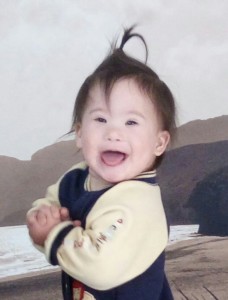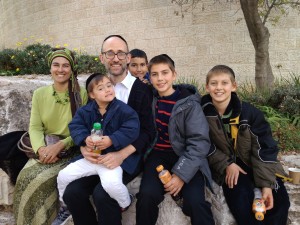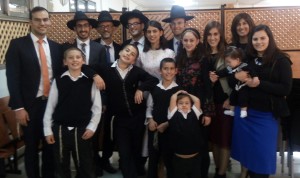
Really busy but not stressed – well, mostly not!
We have just under a month before Tehila’s wedding and then twelve days later Michal will be getting married! A number of their friends have
Never miss a new post. Subscribe below to
receive all new posts directly to your inbox.

We have just under a month before Tehila’s wedding and then twelve days later Michal will be getting married! A number of their friends have

Our little Rafael is growing fast and just celebrated his first birthday! It’s been ten months since he joined our family. Ds11 told me he

Two nights ago we had the official engagement party for Tehila and Meir. The only thing missing was that we didn’t get a family picture

Dd22 celebrated her 23rd birthday on the first night of Chanuka in a very special way – by getting engaged! We are delighted to announce

It’s been so busy with the engagement and wedding preparations, but I wanted to share with you about the meeting we had at the Ministry

Saturday night was the official engagement party, and we feel so blessed to have been able to share our simcha with friends and family! There
I am so happy to share with you that our daughter Michal (referred to here as dd21) is now engaged to Amitai Zaroom from Brooklyn, NY!

At the end of last week, my husband and I spent two very intense days at the mandatory foster care workshop that we were supposed
Can you believe it’s been five months since my oldest son got married?!? I hope it’s not too late for you to enjoy these wedding

I think much of the inability to teach others how to respect you stems from a confusion as to what our needs really are or